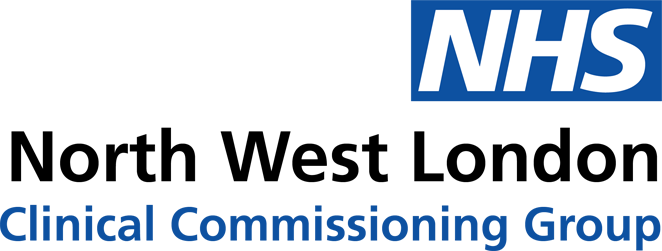Digital inclusion: how it’s empowering people to manage their diabetes better
Published on: 25th May 2022

Photo: Digital inclusion class run by 'digital champion' Bipin Dattani at Wealdstone Methodist Church
Digital inclusion is a powerful tool that is empowering people from disadvantaged and minority groups to manage their diabetes condition better, with an associated reduction in stress levels. Project lead Mohammed Faqsi explains why the initial pilot, in conjunction with other projects, is proving so effective at identifying and targeting these high risk groups.
Reducing health inequalities is a central focus of NHS North West London CCG. Whilst inequalities have always been an important issue, certain aspects of this challenge have been amplified due to the COVID-19 pandemic.
As a project lead, I have been involved in implementing several initiatives within NW London to reduce health inequalities, specifically focused on people living with diabetes. The aim is to empower people to be more informed of their health, and reduce their distress and anxiety around the management of their diabetes.
Diabetes distress, which is an emotional response to living with diabetes, is an increasingly common condition that is thought to affect around one in four people with Type 1 diabetes, 1 in 5 people with insulin-treated type 2 diabetes, and one in six people with non-insulin treated type 2 diabetes. Some of the key markers of health inequalities include ethnic background, living in areas of deprivation and age. There are often notable differences in diabetes care and treatment for people from South-Asian, Arabic, Afro-Caribbean and African ethnic backgrounds. Additionally, these groups are often at a higher risk of diabetes and pre diabetes and this risk is disproportionately heightened because they may be less likely to receive culturally-appropriate help from a medical professional.
Digital Inclusion
Digital inclusion is focused on reducing the barriers for people to access health and care services through digital means (e.g. a smartphone or laptop).
We are aware that in North West London not all of our population are able to access resources and services through a digital means. Many people also lack the skillset to use digital devices and access the internet; this can lead to inequity of access to a wealth of information and, as highlighted during the pandemic, leave people isolated from their communities.
Since September 2021, NHS NW London has worked in partnership with four community organisations - Brent Health Matters, Wealdstone Methodist Church, Dalgarno Trust and Age UK Hammersmith & Fulham - to target areas where there is a high rate of deprivation. These partners, who act as digital champions, are delivering a number of bespoke digital inclusion classes, to improve the skillset of digitally excluded individuals living with diabetes in NW London.
The training involves participants learning basic knowledge on accessing the internet and being part of virtual groups (such as WhatsApp), progressing onto the Know Diabetes platform where they have access to a huge amount of resources at their fingertips to learn more about their condition, as well as take part in several campaigns to improve their health and wellbeing.
We’ve had an amazing initial response to these digital inclusion classes from people of all ages, proving that age and previous inexperience of digital devices is no barrier to improving digital skills and accessing resources on diabetes. Classes will run continue running until September 2022, with an expected total of 300 graduates from the programme.
Our graduates are also registered to the Know Diabetes platform so they can continue to use this as a resource and given a copy of the World Food Carbs and Cals book (authored by Salma Mehar), which contains useful dietary advice tailored to different ethnic backgrounds.
The aim for this digital inclusion initiative is to act as a blueprint for developing a sustainable model for how digital inclusion services could be expanded within NW London.
National Diabetes Prevention Programme
We are also promoting the National Diabetes Prevention Programme (NDPP), and working closely with Primary Care Networks (PCNs) and local authorities in NW London, to identify individuals most at risk of developing diabetes in order to support them with preventative measures, such as dietary and lifestyle advice.
Additionally, through our partnership work with Xyla Health, educational sessions are being held at faith and community centres across NW London. Brent, Harrow and Hillingdon are promoting the campaign via targeted information in their local newsletters and a large health education event, including information on NDPP, is planned for the 22nd May at the Swaminarayan Temple in Brent.
We are also expanding our social media presence, having recently launched a Facebook group and Instagram page to promote various NDPP events and resources with our partners.
Hypertension
Hypertension poses a significant risk to people living with diabetes and we are working with PCN leads and GPs to improve the uptake of Hypertension health checks within BAME communities.
Multi-lingual information leaflets placed in GP surgeries and the development of webinars for hypertension are proving effective at to raising awareness and encouraging people to get tested.
The work led by the NW London Diabetes team has also been vital for reducing health inequalities within our communities, empowering people to become more informed on their health and ensure we remain connected with our peers. I am pleased to be leading on this targeted preventative work with our partners, as I can see it’s really making a difference.
Further information
Our Communities | Know Diabetes
.








